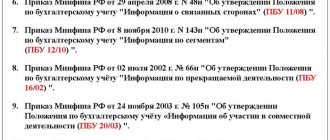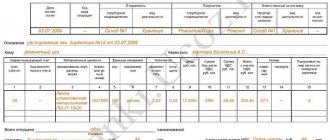Currency transactions between residents and non-residents are required to be carried out in accordance with Federal law. The current instruction for carrying out the procedure of interest to us is Federal Law No. 173-FZ, as well as other regulatory legal acts similar in content. They describe the features of conducting currency transactions, which we reflected in clear language later in our article.
Foreign exchange transactions between residents and non-residents
Except in what cases are foreign exchange transactions between residents prohibited?
In accordance with paragraph 1 of Art.
9 of Law No. 173-FZ, foreign exchange transactions between residents in Russia are prohibited, except in a limited number of cases. Currency transactions between residents are allowed to be carried out:
- In the following cases:
- when transferring rubles from one resident’s account opened outside Russia to another’s account opened in Russia, and vice versa, from a Russian account to one opened abroad;
- when transferring rubles from a resident’s account opened abroad to the same foreign account of another resident;
- resident legal entities when carrying out the following currency transactions with funds credited to their foreign accounts:
- for the payment of wages to employees of its representative office located abroad;
- for reimbursement and payment of travel expenses of employees of foreign missions sent to the territory of the country where the representative office is located, or to another place, with the exception of business trips in Russia;
- cash payments (including in foreign currency) when carrying out transactions with resident individuals located abroad and foreign branches (representative offices) of other resident legal entities;
- donating currency to the country and society or to close relatives and spouses;
- wills/receipt of currency by inheritance;
- acquisition of currency valuables for collecting purposes;
- making a transfer of funds without opening a foreign currency account from Russia or receiving foreign currency in Russia as a transfer, since the Central Bank sets a limit on the amount of such transfers.
ConsultantPlus experts explained in detail how foreign exchange payments and control of foreign exchange transactions are carried out. Get trial access to the K+ system and upgrade to the Ready Solution for free.
More information about what currency transactions are can be found in the article “Currency transactions: concept, types, classifications” .
A foreigner buys real estate in Russia - what are the currency transactions?
A foreign buyer of real estate is, in most cases, a foreign currency non-resident of Russia; a seller of real estate in Russia, as a rule, is a foreign currency resident.
Payment for real estate located in Russia under transactions is carried out in cash or non-cash form. Russians do not trust banks and prefer cash payments in rubles rather than in foreign currency.
When preparing to buy real estate in Russia, a foreigner needs to take into account. Payment for real estate in cash foreign currency and cash Russian rubles to a Russian resident is prohibited, and non-cash foreign currency can only be transferred to a Russian citizen to an account in an authorized bank. (Authorized bank is a bank that has a license from the Central Bank of the Russian Federation for operations with foreign currency). Such authorized banks are almost all banks in Russia. Obviously, it is convenient and safe to pay through a bank account. But here, too, not everything is simple.
Peculiarities of Russian legislation: The buyer will become the owner of the property only after making a record in the Unified State Register of Real Estate (USRN) of the buyer's rights to the purchased property and a record of the termination of the seller's ownership rights. The period for making an entry in the Unified State Register is 7 working days. Paying even when signing an agreement is dangerous, what if the property is not registered?
Safe payments for real estate transactions in Russia are carried out through a bank - through a safe deposit box or letter of credit, with access conditions (disclosure of the letter of credit). In one case, a foreigner needs to legally receive cash and deposit it in a safe deposit box, in the other, he needs to place money in an account in an authorized Russian bank in Russia (letter of credit). In any of these options, in order to comply with currency laws, a foreigner must legally bring money into Russia - bring in cash or transfer it to an account opened in his name in Russia. At the same time, a resident of the Russian Federation cannot accept cash from a non-resident.
Attention: A foreigner must open an account in Russia in his own name and deposit money into it, or use a bank account to receive funds.
Only then can the funds be used in the transaction for payment.
A different procedure for making payments will lead to a violation of currency laws or to the loss of security of the transaction for one of the parties.
Settlements through foreign accounts of Russian sellers who are residents of the Russian Federation are regularly considered as an option. You should not do this - it is expressly prohibited by law.
Foreign currency accounts: are there any restrictions on transactions between residents and banks?
There are no restrictions on currency transactions between residents and authorized banks if they relate to:
- credit relations (payment of interest, fines and penalties, receipt/repayment of a loan);
- depositing/withdrawing funds from bank accounts;
- obtaining bank guarantees, fulfilling by the resident the duties of a guarantor, mortgagor;
- purchasing bills of exchange issued by authorized banks, demanding payment on them upon presentation;
- acquisition/sale of foreign currency and checks in exchange for Russian rubles;
- payment of commissions to banks.
Residents have the right to make payments using accounts opened with authorized banks in any foreign currency. If necessary, they can carry out conversion operations at a rate agreed with banks. It does not matter in what foreign currency the account was opened.
Authorized banks, which themselves are professional participants in the securities market, can independently open and maintain their own brokerage accounts necessary for non-residents who are their clients for the purpose of accounting for funds. In addition, professional participants in the securities market themselves open special accounts in their authorized banks to record money when making brokerage transactions.
In case of violation of the conditions for carrying out currency transactions, in particular the terms for crediting funds to residents' accounts, sanctions may be applied to the offenders, the calculation of which is based on the Central Bank's refinancing rate.
Read more about this rate in the article “Information on the refinancing rate of the Central Bank of the Russian Federation” .
What are the risks of settlements in real estate transactions if a foreigner is involved in the transaction?
For carrying out prohibited currency transactions or for carrying out currency transactions in violation of the law, liability is established in the form of fines from 4,000 rubles to 100% of the currency transaction.
Currency transactions are controlled by banks and the Federal Tax Service of the Russian Federation (FTS RF) represented by territorial tax inspectorates. Since the Federal Tax Service receives information about 100% of transactions online, and a significant part of transactions go through banks, it is not at all difficult for a citizen of the Russian Federation to “get into” a controversial situation.
Russian currency legislation is confusing and prohibitive in many respects.
Since 2014 legislation has changed significantly and repeatedly, which in total has led and continues to lead to massive violations of foreign exchange transactions. For example, parties to a transaction should not be reassured by the legal provision according to which currency transactions between residents of the Russian Federation and non-residents are carried out without restrictions. This phrase in the law “On Currency Regulation and Currency Control” is easy to read, remember, and creates a false impression.
Most realtors, and even notaries, do not know another article, according to which settlements when carrying out currency transactions are made by resident individuals through bank accounts in authorized banks . This means that under an apartment purchase and sale transaction, settlements between a resident of the Russian Federation and a non-resident of the Russian Federation in cash Russian and foreign currency are prohibited. For violation of such a ban, a fine of 75-100% of the amount of the currency transaction is established. (Part 1 of Article 15.25 of the Code of Administrative Offenses of the Russian Federation) Contains the law on currency regulation and other surprises. In 2021, information appeared about the facts of claims regarding transactions with non-residents.
Is foreign currency borrowing between residents allowed?
When applying for a foreign currency loan, the lender transfers to the borrower a certain amount in foreign currency, subject to its return after a specified period. Such loans can be provided on an interest-bearing or free-of-charge basis.
Carrying out currency transactions between residents of the Russian Federation, which includes loans in foreign currency, is not allowed. However, in paragraph 1 of Art. 9 of Law No. 173-FZ provides exceptions that allow residents to receive loans in foreign currency from authorized financial institutions when drawing up relevant agreements. That is, if such a loan is taken out from a bank, there is no violation of the law.
If a loan agreement is concluded between 2 resident economic entities, it must contain only ruble amounts. If you wish to indicate them in the currency at the time of settlement, the final amount should be linked to the exchange rate according to the Central Bank of the Russian Federation.
If a currency transaction to issue a loan is carried out between a resident and a non-resident of the Russian Federation, there are no restrictions on it.
A foreigner sells real estate located in Russia
The conditions for compliance with Russian currency legislation and security of payments are similar to the procedure for a foreigner purchasing real estate in Russia, with the exception of two circumstances.
1) Foreign exchange non-residents have the right, without restrictions, to transfer funds from their accounts in authorized banks in Russia to their accounts in foreign banks. Transfers are possible in Russian rubles and foreign currencies. Accordingly, Russian banks, as currency control agents, will verify the legality of foreign exchange transactions performed by a foreigner.
2) When planning to transfer money from the sale of real estate located in Russia to a non-resident’s foreign account, it is necessary to ensure that the amounts transferred by the non-resident from an account in an authorized bank to a foreign account correspond to the amounts specified in the apartment purchase and sale agreement and in other transaction documents. This information is controlled by foreign banks when crediting money to foreign accounts of non-residents by source of origin, in order to detect tax evasion and money laundering.
Accessed December 22, 2021.
Moscow
Features of currency transactions between non-residents
In accordance with Art. 10 of Law No. 173-FZ, foreign exchange transactions between non-residents are allowed in Russia without any restrictions. Thus, non-residents can freely transfer foreign currency and Russian rubles to each other from/to bank accounts in authorized banks to/from foreign accounts. There are also no restrictions regarding making payments between non-residents without opening bank accounts, both when receiving funds from abroad and when transferring currency and rubles abroad.
Non-residents are allowed any transactions with domestic securities on the territory of Russia, subject to compliance with federal antimonopoly legislation. At the same time, non-residents must carry out currency transactions among themselves using rubles only through bank accounts opened in the Russian Federation.
For information about what taxes and contributions must be paid by non-residents on the territory of the Russian Federation, read the materials:
- “Insurance premiums and taxes for non-residents”;
- Personal income tax from non-residents of the Russian Federation in 2021".
Settlements in foreign currency on the territory of the Russian Federation between individuals
The procedure for regulating payments in foreign currency between individuals in Russia is similar to the regulation of this issue in relation to legal entities. Citizens also cannot pay each other with banknotes other than rubles. However, the law allows for the possibility of donating currency from one person to another, provided that the donor and recipient are close relatives. Inheritance of funds in foreign currency is also allowed (Articles 9, 14 of Law 173-FZ).
Individuals have the right to purchase cash currency from authorized banks without opening a foreign currency account, as well as send a bank transfer in foreign currency to another individual in the territory of the Russian Federation. In the latter case, the bank may request confirmation from the sender that the transfer is not related to the obligation to settle within the framework of the contractual relationship.
Read also: How to open an account abroad
The procedure for making payments between residents and non-residents
In Russia there are no restrictions on currency transactions between residents and non-residents. The exception is cases where certain restrictions are established to prevent a decrease in foreign exchange reserves in Russia.
Before 2006–2007, many more such restrictions were in place. However, today there is only the restriction specified in Art. 11 of Law No. 173-FZ. In particular, transactions for the acquisition or sale of foreign currency, as well as checks in such currency, can only be carried out through banks authorized to carry out foreign exchange transactions.
In addition, the Central Bank establishes a number of requirements for financial institutions for documenting transactions with cash foreign currency. Thus, the financial regulator provides for the requirement for mandatory identification of a person buying or selling foreign currency. Personal data may be included in documents drawn up when conducting transactions with foreign cash.
All overseas transactions between residents and non-residents are subject to exchange controls. Details are in the material “Currency control when transferring money abroad” .
Currency resident and foreigner - the relationship between concepts and significance for currency control
Currency resident of Russia - individuals who are citizens of the Russian Federation (Article 2 of the Law of the Russian Federation “On Currency Regulation and Currency Control” No. 173-FZ). Foreigners can also become currency residents of the Russian Federation if they permanently reside in the Russian Federation on the basis of a residence permit provided for by the legislation of the Russian Federation, foreign citizens and stateless persons.
Foreign exchange non-resident - individuals who do not comply with the above rules. The above provisions of Article 2 of the Currency Law have been in effect since 2021, and have a significant difference from the previously valid edition - 2017. Citizens of the Russian Federation are always currency residents of the Russian Federation . Foreigners - Non-citizens of the Russian Federation, are non-currency residents of the Russian Federation, but in certain circumstances, foreigners become currency residents. The significance of resident/non-resident status for real estate transactions - when performing currency transactions, a resident is obliged to comply with the currency legislation of the Russian Federation.
Results
To summarize, it can be concluded that foreign exchange transactions between residents are prohibited, except in a limited number of cases. All these exceptions are listed in Law No. 173-FZ and can only be expanded by amending this law.
As for currency transactions between residents and non-residents, as well as settlements carried out by non-residents among themselves, there are no significant restrictions for them. There are only a number of requirements for the execution of transactions.
When making transactions with foreign currency values and currencies (foreign and Russian), you will need to indicate codes for types of currency transactions, which can be found in the article “Directory of codes for types of currency transactions (2020 - 2021)” .
These requirements, as well as the procedure for execution and forms of the necessary documentation, are described in detail in the regulations issued by the federal financial regulator.
Sources: Federal Law of December 10, 2003 No. 173-FZ
You can find more complete information on the topic in ConsultantPlus. Free trial access to the system for 2 days.
In what currency can residents make payments?
Let's turn to Art. 140 of the Civil Code of the Russian Federation (hereinafter referred to as the Civil Code of the Russian Federation). According to the general rule established therein, all payments and settlements in Russia can be made in 2 ways:
- cash, in which the only acceptable means of payment are coins and banknotes of the Bank of Russia (Article 29 of the Law “On the Central Bank of the Russian Federation” dated July 10, 2002 No. 86-FZ, hereinafter referred to as Law No. 86-FZ);
- non-cash.
In both cases, the legislator designated the ruble as the main legal tender. All monetary obligations are expressed in rubles (Part 1, Article 317 of the Civil Code of the Russian Federation).
It is permissible to set the payment amount in foreign currency (FC), if in fact the settlement will be in rubles. Conversion into rubles by default occurs based on the official exchange rate valid on the day of payment (a different procedure can be agreed upon in the contract).
In addition, within a very narrow framework established by law, it is permissible to carry out settlements for obligations on the territory of the Russian Federation using IW, as well as payment documents in IW.
What is a currency clause and how to agree on it in a contract, read in the ready-made solution of ConsultantPlus. If you do not yet have access to the ConsultantPlus system, you can obtain it free of charge for 2 days.
General procedure for non-cash currency payments
The specified procedure is defined in Art. 14 of the Law “On Currency Regulation...” dated December 10, 2003 No. 173-FZ (hereinafter referred to as Law No. 173-FZ).
Important! Residents have the right to make payments on their bank accounts in any foreign currency. It does not matter in what currency the bank account was opened - if the need arises, a conversion operation will be carried out at the rate of the corresponding bank.
For individuals, the procedure for making non-cash payments in the Internet is similar to the procedure for legal entities.
A number of by-laws establish features:
- purchases of foreign currency by legal entities and entrepreneurs (Instruction of the Bank of Russia dated August 16, 2017 No. 181-I);
- payment in currency of the authorized capital of a credit organization (clause 4.3 of the Bank of Russia instructions dated 04/02/2010 No. 135-I).
Justice and law
Legal experts are familiar with judicial practice, and experts in the field of foreign exchange transactions share practical experience. The requirements of the law are often considered absurd, and here’s why: our compatriot received a fine because his transfer was stuck in a foreign bank and returned not to Russia, but to another foreign intermediary credit organization. A formal approach and reading the letter of the law says that a violation is obvious: the money did not reach the recipient, it fell into third hands, prove that it was not terrorists.
Delays in crediting foreign currency earnings under export contracts are the basis for thousands of court cases that are inundated with arbitration courts. Scientifically speaking, we are talking about the repatriation of funds. If a foreign partner delays payment, enter into an agreement to extend the deadlines and present it to the bank. Otherwise, currency control will take over and you won’t get away with a fine.








